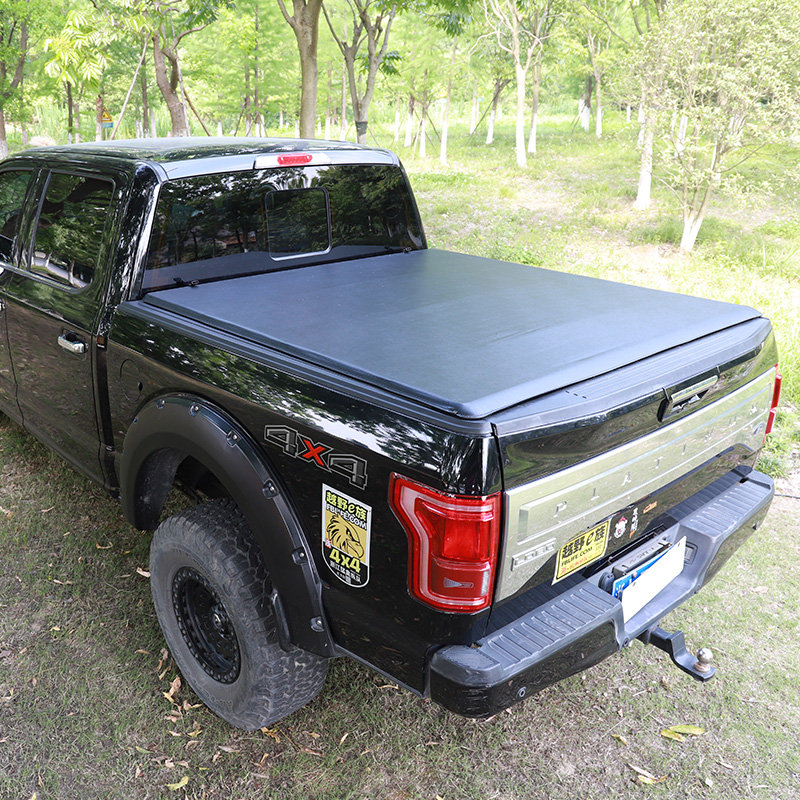2025-08-20
Tonneau covers have become increasingly popular among truck owners and pickup enthusiasts, primarily for their ability to protect the cargo bed. One of the key considerations for anyone investing in a Tonneau cover is whether it offers reliable protection against environmental elements such as rain and dust. The answer depends on several factors, including the type of Tonneau cover, its materials, design, and installation quality.
1. Types of Tonneau Covers and Their Protective Capabilities
Tonneau covers come in a variety of designs, including soft roll-up, soft folding, hard folding, retractable, and one-piece hard covers. Each type provides a different level of protection against rain and dust.
Soft Tonneau Covers: These are typically made from vinyl or fabric materials stretched over a flexible frame. While soft covers can keep light rain and dust out of the truck bed, they may not provide complete protection in heavy rain or strong winds. The seams and edges of soft covers can allow water or fine dust particles to seep through, especially if the cover is not tightly secured.
Hard Folding and Hard One-Piece Covers: Constructed from aluminum, fiberglass, or hard plastic, these covers offer superior protection. The rigid structure forms a tight seal with the truck bed, preventing water and dust from entering. Hard covers are especially effective during heavy rainfall or dusty conditions, as they maintain their shape and resist deformation under pressure.
Retractable Covers: These covers slide open and closed along tracks, often featuring tight seals along the edges. Retractable Tonneau covers can provide excellent protection against rain and dust if properly maintained. However, the sliding mechanism requires regular cleaning to prevent dust accumulation that could compromise the seal over time.
2. Sealing and Weatherproofing
The protective performance of a Tonneau cover is not solely determined by its material; the sealing design is equally critical. Most high-quality covers are equipped with weather seals along the tailgate and side rails, creating a barrier against rainwater and dust intrusion. A well-fitted Tonneau cover can prevent water from pooling or leaking into the cargo area.
However, even the best Tonneau covers may allow minimal dust penetration during extremely windy conditions. Dust can enter through tiny gaps between the cover and the truck bed, but this is generally limited and far less than what would accumulate in an uncovered truck bed.
3. Drainage and Water Management
Some Tonneau covers are designed with integrated drainage channels that direct water away from the truck bed. This feature is particularly important during heavy rainfall, as it prevents water from seeping through the edges or pooling on top of the cover. Proper installation ensures that water flows naturally toward the tailgate and off the vehicle, minimizing any risk of leakage.
Soft covers, while less rigid, often have overlapping edges and tensioning systems to reduce water infiltration. While they may not be completely waterproof under extreme conditions, they are typically sufficient for light to moderate rain.
4. Dust Protection
In dusty environments, a Tonneau cover provides significant protection compared to an open truck bed. The cover acts as a physical barrier, preventing dust from settling directly onto cargo. Hard covers are especially effective because they maintain a snug fit and do not allow dust to penetrate through folds or fabric. Soft covers, while slightly more permeable, still reduce dust accumulation substantially, protecting items like tools, luggage, and groceries.
5. Practical Considerations
Even with a high-quality Tonneau cover, proper installation is essential to ensure maximum protection. Misaligned or loosely fitted covers can allow water and dust to enter. Regular inspection and maintenance, such as cleaning the seals and ensuring tensioning mechanisms are functioning, enhance the cover’s protective abilities.
Additionally, while Tonneau covers provide excellent protection against rain and dust, they do not make the truck bed completely airtight or watertight. Owners should still exercise caution when transporting sensitive or delicate items during severe weather conditions.
6. Advantages Over Uncovered Truck Beds
Comparatively, a truck bed without a cover is far more vulnerable to rain and dust. Water can accumulate quickly during rainstorms, potentially leading to rust, corrosion, and damage to cargo. Dust and debris can also accumulate rapidly, creating additional cleaning and maintenance challenges. A Tonneau cover mitigates these risks, extending the life of the truck bed and keeping cargo cleaner and drier.
A Tonneau cover does provide good protection against rain and dust, but the degree of protection depends on the type of cover, its materials, sealing, and installation quality. Hard covers and well-sealed retractable covers offer the highest level of protection, effectively keeping water and dust out even in adverse conditions. Soft covers, while slightly less protective under extreme conditions, still significantly reduce exposure to rain and dust compared to an uncovered truck bed. Proper installation and regular maintenance are crucial to ensuring optimal performance. Overall, for truck owners looking to protect their cargo from the elements, a Tonneau cover is a highly effective solution.
